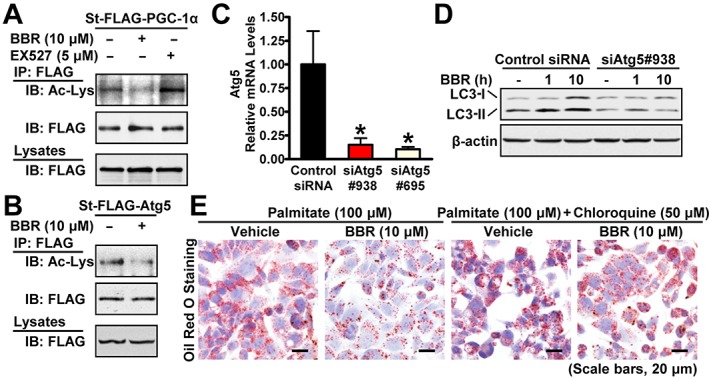Figure 5.

Berberine (BBR) stimulates SIRT1 deacetylation activity and induces autophagy in an Atg5‐dependent manner. Berberine induces deacetylation of (A) PGC‐1α or (B) Atg5. HEK293 cells stably expressing mouse FLAG‐tagged PGC‐1α, human FLAG‐tagged Atg5 (St‐FLAG‐Atg5) or empty vector were treated with 10 μM berberine or 5 μM EX527 for 10 h or 6 h, respectively, followed by immunoprecipitation and immunoblots with the indicated antibodies. (C) The levels of mRNA for Atg5 are decreased by Atg5 knockdown in HepG2 cells. The data were normalized to β‐actin for unwanted sources of variation and presented as the mean ± SEM, n = 5. *P < 0.05, versus control siRNA. (D) Berberine‐stimulated conversion of LC3‐I to LC3‐II is abolished by Atg5 knockdown in HepG2 cells. Cells were transfected with siAtg5 and control siRNAs for 24 h and incubated in serum‐free DMEM containing 5.5 mM glucose overnight, followed by treatment without or with 10 μM berberine for 1 h and 10 h. (E) Berberine's lipid‐lowering effects are attenuated by the autophagy inhibitor chloroquine in HepG2 cells treated with palmitate as reflected by Oil Red O staining.
